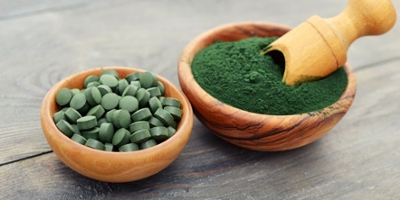
MinerAlert

MinerAlert
Arthrospira platensis
Oscillatoriaceae
Espirulina
Leaves, bark, fruits, seed kernels, and root.

Photo: bio.libretexts.org / Google images
Arthrospira platensis

Photo: bbcgoodfood.com / Google images
Spirulina tablets and powder
Safety/Precautions:
Before you decide to take any medicinal herb or herbal supplement, be sure to consult with your health care professional first. Avoid self-diagnosis and self-medication: Always be on the safe side!
For further information about this plant, please go to the Scientific Monographs section of this website.